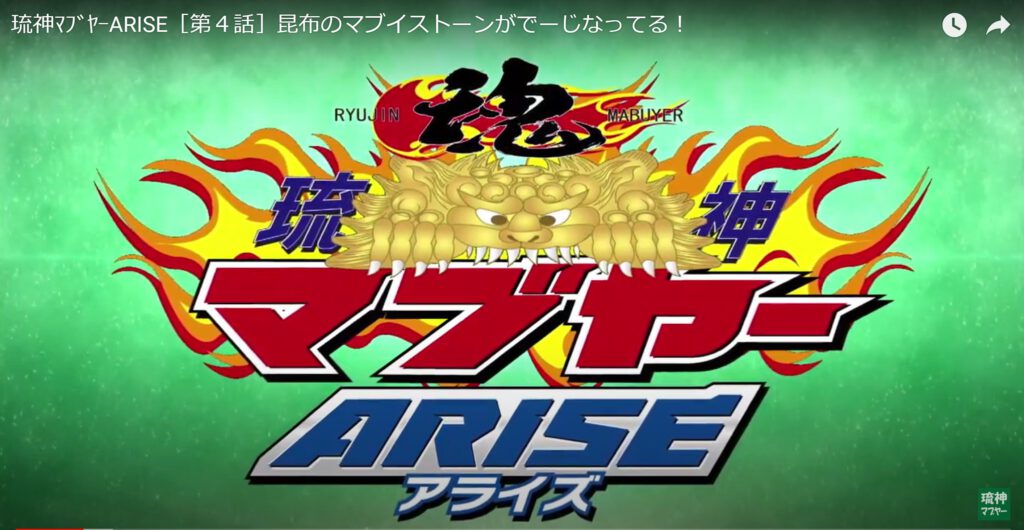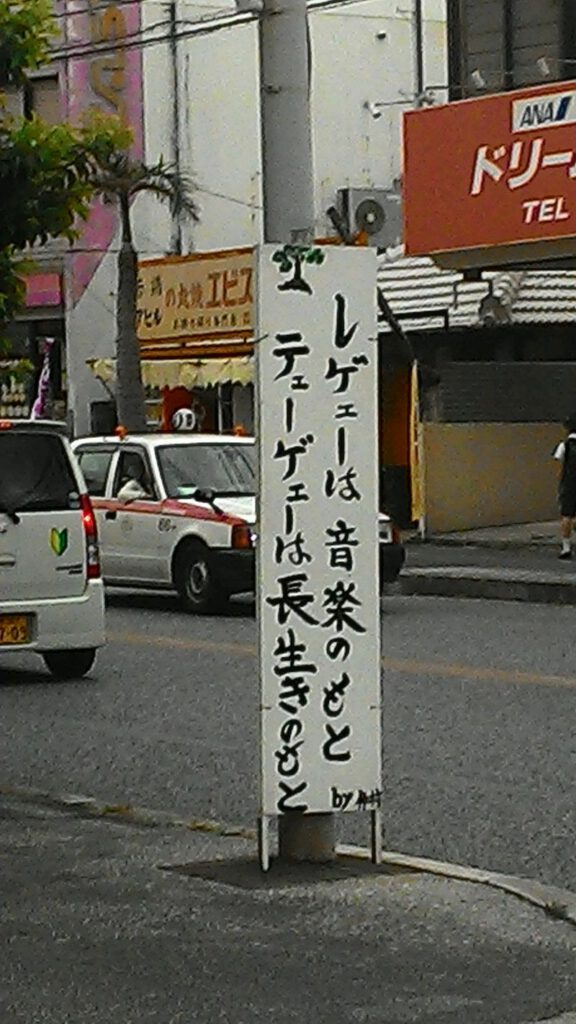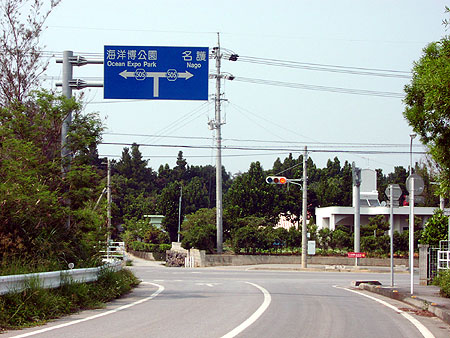I recently spoke with an expert about the Japan-Okinawa relationship, and why Japanese budōka sometimes despise Okinawa. As a possible reason was quoted the generally lax character of the Okinawans, which is ridiculed as tēgē (テーゲー = lax character) or Uchinā time (= not being punctual).
I didn’t know there were words for it, but I certainly experienced it myself. I guess it is ok when you have a siesta such as in many other southern regions due to the heat. But it might become an issue when you waste other people’s time and resources. From my personal experience, once someone took my bicycle, but I found it 500 m down the road at a convenient store. Another time I didn’t find it at all. When it starts raining, sometimes they just take other people’s umbrellas and later hang them on some tree etc. I need to say that dōjō ethics are also quite tēgē in many cases, so you might be in for a big surprise when first visiting Okinawa. I remember a guy who habitually would come late to skip the warmup, then would slowly change, and then would just stand behind the heavy bag until “work” was over and then joined for the rather free practice.
Because of the above, I thought it would be a good idea to explain the matter briefly so everyone can know what they might be experiencing.
So, what is tēgē? Below is a translation of the corresponding Japanese Wikipedia article, which is a perfect start. I slightly edited it.
Tēgē is an Okinawan word and a concept that can be seen in Okinawa Prefecture, meaning to live moderately well without thinking too thoroughly about things. It is the Okinawan pronunciation of the Japanese taigai 大概, meaning to stay within one’s bounds; not to overdo something; not going too far; being moderate. It includes nuances such as: to some extent, by and large, passable, roughly, fair, and so-so.
An example of its usage is given in the Okinawa Encyclopedia (Okinawa Daihyakka Jiten) as follows:
“I can use karate to some extent as well!”
(Wan’nin karate e tēgē ya nain 「ワンニン空手ェテーゲーヤナイン」)
It means, knowing karate not 100%, but just 60-70%. In addition to this original meaning of doing things only 60-70%, there is also the term ‘tēgēism’, representing the particular ideology, philosophy, or belief system of life and the personality of the Okinawan people.
Examples from literature are
“It is too hot on the island to think about details,”
and
“Tēgē can only be described as tēgē.”
As a custom peculiar to Okinawa, it is often a target of criticism from both inside and outside of the prefecture, carrying a negative nuance such as not keeping a set time, not being able to abide by promises, not obeying rules, being irresponsible in words and deeds, and being messy and unreliable in business. Examples of tēgē mentioned in literature are sloppy route bus services, not carrying an umbrella because it is troublesome, or generally not keeping a meeting time.
By the way, in Okinawa, there are times when the bus will not stop at the bus stop unless you raise your hand to indicate your intention to board, just like when you call a taxi.
Tēgē also includes distrust to plane reservations on local lines, as well as drunk driving, which was common well into the 2000s, and the list goes on and on.
As regards drunk driving, although there has been a downward trend due to the strengthening of crackdowns and educational activities, even in 2009, 2.9% of 59,289 traffic violations were drunk driving. The number of arrests per 1,000 population is 3.8 times the national average (1.24 as opposed to 0.33). Drunk driving fatal accidents have been the worst in Japan for 20 consecutive years, and drunk driving fatalities for 15 consecutive years.
On the other hand, it is also a word often spoken to mean a good culture of Okinawa Prefecture, in the sense that small details or excesses are ignored, it is easy-going, it is not bound by rules, it is tolerant.
Tēgē is also found in the story of Ryūjin Mabuyā, in which “Tēgē Stone” is depicted as an important culture that Okinawans must not lose. The character of Ryūjin Mabuyā as a local hero was born from considerations by Okinawan tourist souvenir company Nansei Sangyō, which noticed there were many souvenirs for girls, but not many souvenirs for boys. They planned and created the character of the local hero Ryūjin Mabuyā, which was featured in a special effects television series by Ryukyu Broadcasting that ran from 2008 to 2010. A related series aired in 13 episodes from 2009 and 2010, and there was also a movie based on the series, “Ryūjin Mabuyā – The Movie,” released in 2012.
The story is as follows. Kanai is a young man who apprentices for a master clay-sculptor. In the beginning, he is somewhat careless and lazy. Like most young Okinawan’s he doesn’t know about the soul of the islands and why they have certain traditions. One day he feels very weak and consults his ‘Auntie” who tells him that he needs to recharge his soul, and helps him by chanting an incantation. This summons the spirit of Ryūjin Mabuyā into Kanai’s body, and allows him to transform and fight as the hero. Luckily this occurred just in time, because the Evilcorps (Majimun) had just arrived on Okinawa to steal all of the Mabui stones (soul of Okinawa stones) and cause bad things to happen.
BTW, Ryūjin Mabuyā’s armor is based on the look of a Shisa and his energy attack is summoned by whistling with his fingers.
Returning to the main topic, there is also the aspect that tēgē means “flexible”, such as when you get discounts on bus fares. One of the best examples of tēgē I personally experienced was when I was pushing my bike up a long hill in southern Okinawa in midday heat. A guy passed me by, stepped on his brakes, drove backward, let down the window, and handed me a bottle of water. That was btw the most Okinawan thing I ever experienced, and it might have been related to tegē.
There is also an argument that a “spirit of mutual forgiveness” is at the root of tēgē, which means they will forgive most things and will be not too strict and expect the same from you. Also, according to the “Okinawa Mini Encyclopedia” of 1975, Okinawa has a strong insular spirit (particularly in the countryside) and is conspicuously laid-back due to the tropical climate and the fact that modernization of the region was delayed. For some time, tēgē was perceived as having a bad meaning, but since around the 2000s, tēgē has been re-evaluated and attention focused on the “slow life” of Okinawa, and so tēgē has also become popular as a likeable trait and specific lifestyle of Okinawa.
In 1975, three years after returning to Japan, Sassa Atsuyuki, who was then chief of the Security Division of the Security Bureau of the National Police Agency, was dispatched to the Okinawa Prefectural Police. He noted the following experiences, and it can be seen that tēgē was also part of professional ethics at that time.
- When a scheduled time comes, even if it is in the middle of a meeting, they will try to end the meeting and to go home.
- When the Security Council is on its lunch break, they say “I will go home, have lunch, take a nap, and then we resume at 2:00 pm.”
- The budget send from the National Police Agency to the Okinawa Police was misappropriated for other expenses.
In a dōjō environment as well, anything tēgē might happen, such as letting you pay an initiation fee twice.
© 2023, Andreas Quast. All rights reserved.




